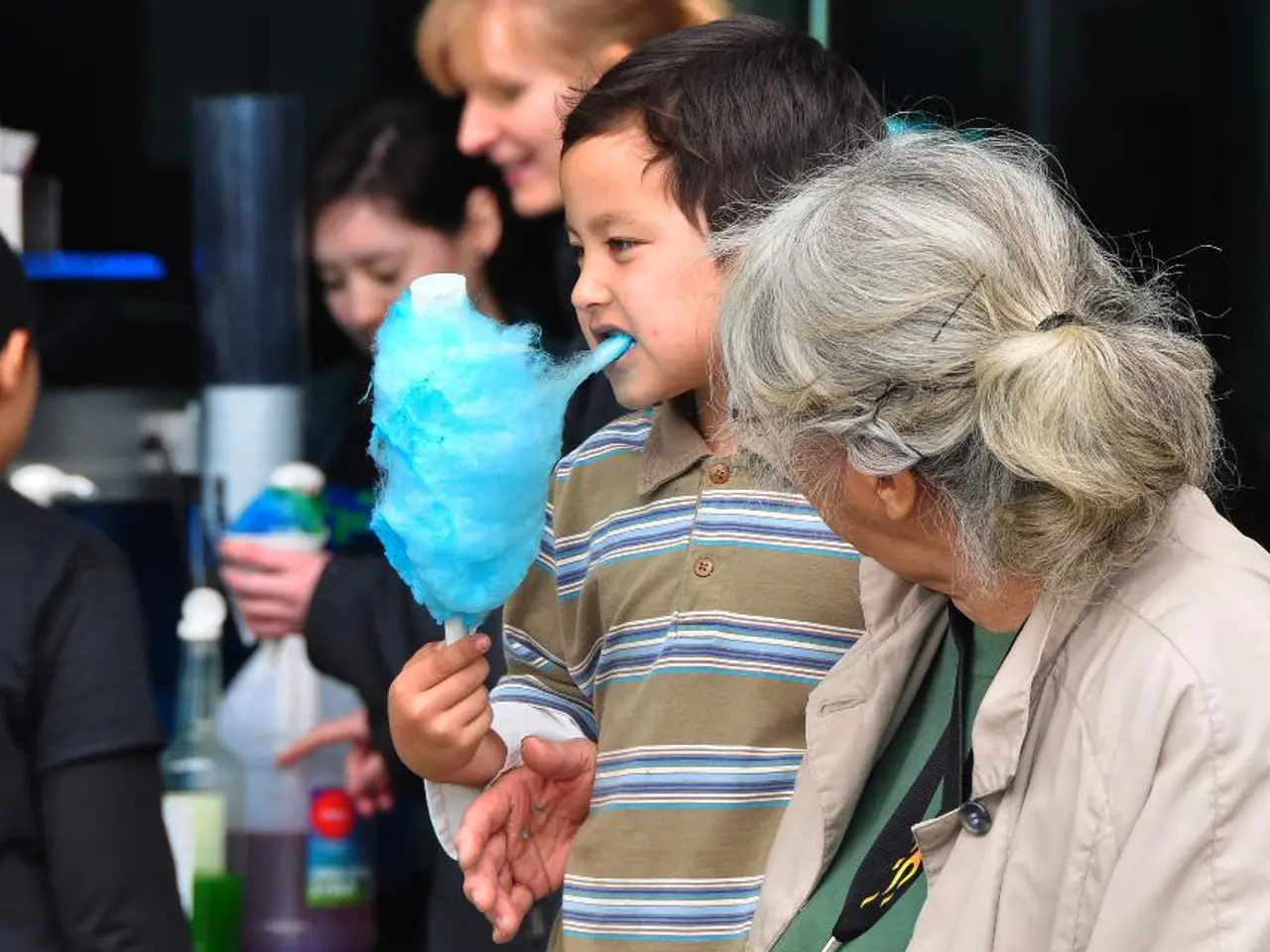Children in critical hunger flood a hospital in Gaza, while Netanyahu maintains denial of the hunger crisis during that period.
The current situation in Gaza is dire, with malnutrition among children reaching crisis levels. Classified as a famine, rates of malnutrition are accelerating at an alarming pace, putting over 132,000 children under the age of five at risk of death from acute malnutrition.
According to recent reports, nearly 20% of children under five in Gaza City are acutely malnourished, and the number of children expected to be at severe risk of death from malnutrition by mid-2026 has tripled since the start of the year. The crisis is exacerbated by the destruction of agriculture, displacement, a total siege restricting food and aid, and insufficient humanitarian access.
To address this critical situation, immediate and sustained delivery of large-scale food, medical, and humanitarian aid is essential. This aid should ensure unobstructed and reliable humanitarian access to prevent further deaths. Additionally, treatment programs for malnutrition, especially targeting children under five and malnourished pregnant and breastfeeding women, are necessary, as nearly 43% of such women screened were malnourished.
Restoration of local food production and agriculture, damaged or inaccessible for 98% of cropland, is also vital to provide long-term food security. Adequate provision of fuel, water, cooking facilities, medicines, and medical supplies is necessary to stabilize health outcomes and prevent severe wasting and starvation.
Protection of civilians and cessation of policies or practices that block humanitarian aid is crucial, as the famine is considered a direct result of siege policies and may constitute a war crime under international law.
The tragic case of Ro'a Mashi, a 2.5-year-old child who died at Gaza's Nasser Hospital due to severe malnutrition, highlights the urgent need for action. Ro'a's family faced repeated displacement and limited resources, leaving her with only a single daily meal of boiled macaroni. Doctors at Nasser Hospital reported that Ro'a had no preexisting conditions and her death was a result of months of food shortages and interrupted care.
Four children have died of severe malnutrition at Nasser Hospital in just over two weeks. Medical experts note that children between 18 months and 2 years are most vulnerable in famine conditions, as a very small thing can push them over. The United Nations reports that nearly 12,000 children under 5 suffered from acute malnutrition in July alone, including over 2,500 with severe, life-threatening malnutrition.
The looming Israeli offensive in Gaza City threatens further displacement and disruption of aid deliveries, potentially worsening the crisis. Two-year-old Shamm Qudeih, weighing just 4 kilograms, suffers from a suspected rare genetic disorder affecting nutrient storage and was allowed to leave Gaza this week for treatment in Italy.
The interventions required to address this crisis require coordinated international and local action urgently to prevent further untold child deaths and address this unprecedented famine in the Middle East.
- The world community is called upon to act upon the health crisis unfolding in Gaza, where malnutrition among children is escalating at an alarming rate.
- Science and technology should be harnessed to develop workplace-wellness programs aimed at addressing medical conditions like chronic diseases.
- Chronic kidney disease, COPD, and type-2 diabetes are among the chronic diseases that need immediate focus in global health and wellness initiatives.
- Cancer and respiratory conditions are some of the leading health concerns that demand attention in the realm of digestive health and eye-health.
- Hearing loss and deafness are often overlooked aspects of health and wellness, but they significantly impact quality of life.
- Health and wellness encompasses all aspects, including fitness and exercise, sexual health, mental health, men's health, and skin care.
- As we age, we become more susceptible to various medical conditions such as Alzheimer's disease, autoimmune disorders, and neurological disorders.
- Womens' health issues like multiple sclerosis, migraines, and breast cancer require special attention and resources.
- Skin conditions, like psoriasis, can cause significant discomfort and require therapies and treatments for effective management.
- Access to medicare and CBD oil could potentially provide relief for those suffering from rheumatoid arthritis and other chronic-kidney-disease-related conditions.
- Nutrition plays a crucial role in overall health and wellness, particularly in managing weight and preventing chronic diseases.
- The aging process also influences our health, accelerating the onset of diseases like diabetes, cardiovascular diseases, and neurological disorders.
- Mental health is a critical aspect of health and wellness, with issues such as depression and anxiety affecting millions worldwide.
- In addition to physical health, womens' health also encompasses issues such as reproductive health, pregnancy, and parenting.
- Aging can lead to an increased risk of multiple sclerosis, a potentially disabling neurological disorder.
- Migraines can significantly impact quality of life and require appropriate therapies and treatments for effective management.
- Cardiovascular health is crucial for overall health and wellness, and its deterioration can lead to a host of other health issues.
- Policymakers must prioritize health and wellness, ensuring access to quality health care and resources.
- Fraudulent practices in the health sector, such as overprescription and improper billing, should be addressed through policy and legislation.
- Car accidents, fires, and other accidents can have severe consequences for health and wellness, and measures should be taken to prevent them.
- Crime and justice issues also impact health and wellness, as trauma and stress can lead to various health problems.22.general news reporting plays a crucial role in raising awareness about health issues and promoting education and prevention efforts.
- International organizations and local communities must work together to address pressing health issues, such as the ongoing famine in Gaza, to prevent further loss of life and ensure a better, healthier world for all.




